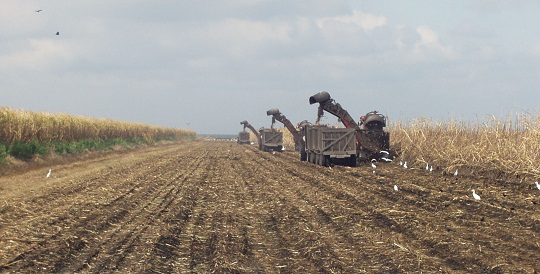
Farming, the South Florida way…
The extended time for farms to comply with Spill Prevention, Control, and Countermeasure (SPCC) Plan requirements is just about up! An October 2011 rulemaking by the U.S. Environmental Protection Agency set May 10, 2013 as the deadline for farms to prepare or amend SPCC Plans in accordance with current requirements.
“Existing” farms – that were in operation on or before August 16, 2002 (yeah, that’s how long the SPCC amendments have been in the works) – must maintain or amend their existing plans by the May 10 compliance date. Of course, you owners and operators of existing farms already have a plan, and have been maintaining it all along, right?
“New” covered farms that started operating after August 16, 2002, must prepare and implement their SPCC Plans by the May 10, 2013, compliance date or upon startup, whichever is later.
So, how do you know if your farming operation is subject to SPCC requirements?
Under the EPA’s oil spill regulations, a farm is defined as a facility on a tract of land devoted to the production of crops or raising of animals, including fish, which produced and sold, or normally would have produced and sold, $1,000 or more of agricultural products during a year. You need to prepare and implement an SPCC plan if your farm:
- Stores, transfers, uses, or consumes oil or oil products, such as diesel fuel, gasoline, lube oil, hydraulic oil, adjuvant oil, crop oil, vegetable oil, or animal fat;
- Stored quantities of oils exceed 1,320 gallons in aboveground containers or 42,000 gallons in completely buried containers; and
- Due to its location (e.g., proximity to streams, canals, or other surface water bodies), could reasonably be expected to discharge spilled oil to waters of the United States or adjoining shorelines.
More information on compliance with SPCC requirements can be found at www.epa.gov/emergencies/content/spcc/spcc_ag.htm. For further guidance and assistance, please contact T. Cozzie Consulting.
